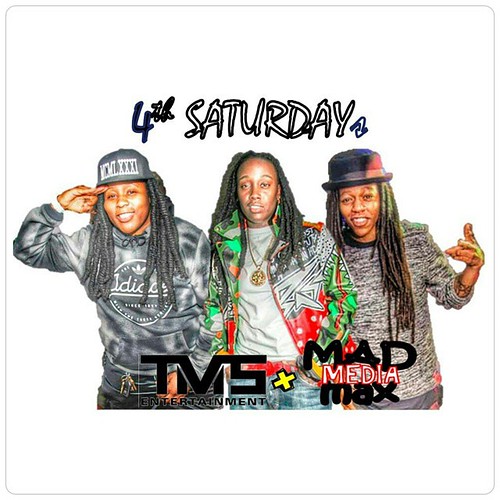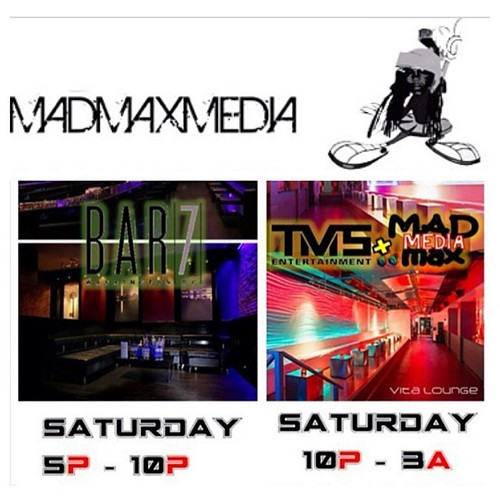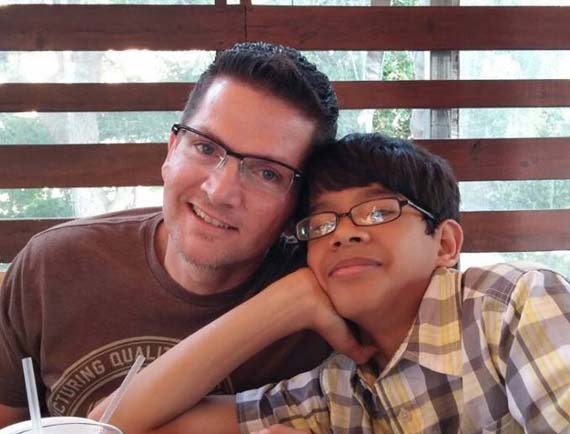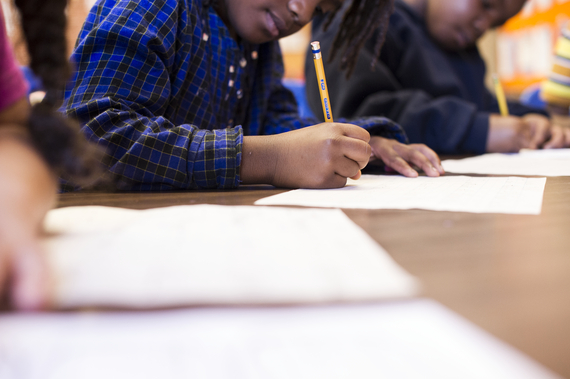Born with LGBT Brains #5
Idealism and #dualism are false and eliminative #materialism is true. #Libertarianism is false and incompatibilist #determinism is true. #Christianity #Islam #Hinduism and #Buddhism…
www.youtube.com/watch?v=IDqqZiy6m00&feature=youtube_gdata
TONIGHTTTTTT…. The Sexy 👏ASS 'CAT' WILL BE IN THE BUILDING!! @vitaLounge — WE #TMSentertainment & #MADmaxMEDIA ARE SHUTTING NEXT SATURDAY DOWNNNNN💯 + 2 DOPE ASS DJs… PHILLYs OWN…. ALL THE WAY FROM UP🔝✈️ ….SHE GOES BY D

5 Best Arguments from the Supreme Court Marriage Briefs
5 Best Arguments from the Supreme Court Marriage Briefs
We’ve boiled hundreds of pages of legal briefs down to just five main arguments you need to know.
Matt Baume
On Alan Turing, Me and My Son
Recently, my husband and I went with a friend to see The Imitation Game. The movie is about Alan Turing, a brilliant mathematician who helped crack the secret code created by the Nazi’s Enigma machine in World War II. It’s estimated that this shortened the war by at least two years and saved millions of lives.
Most people outside the world of computing have never heard of Alan Turing. Not only was his work during the war classified for fifty years, he died in 1953 from cyanide poisoning, possibly suicide. Alan was 41 when he died. He also died in disgrace. He had been convicted of indecency in a time when sexual relations with another man were a criminal offense. He spent his life hiding his sexuality for fear of rejection and the social and criminal consequences. This brilliant war hero was never able to talk about his role in breaking Enigma. Nor could he talk about his true self. He most certainly could not have imagined living his life as a successful, openly gay, man.
We related to many aspects of the movie. When I first came out, I couldn’t imagine being able to marry and have a family with another man. I had also once considered joining the military, but ultimately couldn’t accept that I’d have to lie and live in the closet through my years of service, as Turing had done for his. Still, I never worried about being arrested and prosecuted for being gay.
The three of us left the theater feeling very thankful to have been born in our time and not Turing’s. We are all in our 40’s, like Turing was when he died. Yet we are successful, accepted members of our professions and communities. We are all openly gay and legally married. My husband and I have two adopted children. Our friend and his husband have hosted and cared for several foreign exchange students. While marriage equality has yet to come to some states, the federal government recognizes our marriages. It is all but inevitable that same-sex couples will soon be able to legally marry nationwide. How very different our lives and possibilities are than Alan Turing’s.
Which brings me to my son. He came into our home just before his 13th birthday. We knew from his case worker that he was gay before we met him. At that point, he had only come out to her. Later, just before his 14th birthday, he decided to come out to the rest of his world through social media. We were very proud of him for the courage and strength he showed at such a young age to be honest and true to himself and let the chips fall where they may. It also made us wonder at how different his world is from the one in which we grew up. Being openly gay in middle school would have seemed close to a death wish for us at his age. For our son and his peers, it has been largely a non-issue.
Today we marvel at the world in which our son is growing up. Of course there are still inequities and serious struggles, and there will always be those who have issues with the LGBT community. Sadly, not all LGBT youth have as accepting a reality as does our son. But we know that his reality includes same-sex couples living openly as successful, accepted members of their families and communities, raising their children in peace. He knows, without question, that he can date whomever he chooses. He can bring them home to our family, and we will accept them completely. He will be able to marry anyone he pleases, and his marriage will be just as legal and valid as his sister’s. If he chooses to join the military, he will be able to do so and serve openly with honesty, integrity and honor. The world is his to enjoy – without limitation.
Ye, we aren’t looking at the world through rose-colored glasses. We know that countless numbers of men and women have been, and continue to be, persecuted simply for being who they are. We understand how fortunate we are just to be able to raise our children and to glimpse the possibilities in store for them. We can only imagine how the world may be for our grandchildren. As for our son, we marvel with full hearts at how different his opportunities are than ours were at his age – just as we are grateful for how different our lives and opportunities are than Alan Turing’s were in his time.
Indianapolis Bakery That Refused to Make Cake for Gay Couple Has Gone Out of Business
Indianapolis Bakery That Refused to Make Cake for Gay Couple Has Gone Out of Business
111 Cakery, an Indianapolis bakery that made headlines last year for refusing to make a cake for a gay couple’s commitment ceremony because the owners claimed it was a “commitment to sin,” has now closed its doors, The Indianapolis Star reports:
The 111 Cakery was still profitable, said co-owner Randy McGath, but McGath’s 45-year-old wife, Trish, who did most of the baking, wanted more time to spend with the couple’s four grandchildren. The business “was wearing her out,” her husband said. She has been taking a break from working since Dec. 31, when the bakery went out of business, he said. […]
The flap led to just a single picketer urging a bakery boycott, but many nearby residents were on his side. The bakery was at the intersection of 16th and Talbott streets, a hub of gay culture for decades. At least three long-established gay bars are just blocks away.
Other people, however, seemed to applaud the bakery’s stand, traveling long distances for pastries. “We had people from all over, from Brownsburg and Lafayette,” McGath, 48, said.
An ensuing sales spike lasted three or four months. After that the long-distance business seemed to cool, but McGath insisted sales never dipped below their pre-flap levels.
Businesses in Indiana can lawfully discriminate against and refuse to do business with individuals because of their sexual orientation or gender identity.
Kyler Geoffroy
(LGBT) Our Anniversary Video
(LGBT) Our Anniversary Video
Going to be posting one of these videos every anniversary bc every moment with her should be shared. I love you sm Hailey ❤️ for ever and always.
www.youtube.com/watch?v=FyH3h_8DQoA&feature=youtube_gdata
By @tmsentertainment_dc via @RepostWhiz app: TODAYS TURNUP!!!! AFTER THE SHOW…. ITs THE AFTERPARTYYYYYYY!!!!! —- #SATURDAYsocial |BAR 7 – SATURDAY 5p-10p —- #4thSATURDAY #Recess | VITA LOUNGE – SATURDAY 10p-3a #Women #DMVevents #DMVgayEVENTS #lesbia

Steve Grand Talks About Debut Album 'All-American Boy', His Desire to Be a 'Uniter': VIDEO
Steve Grand Talks About Debut Album 'All-American Boy', His Desire to Be a 'Uniter': VIDEO
Steve Grand, who catapulted to success on the heels of his super-viral “All-American Boy” video (now closing in on 4 million views), dropped an EPK this week talking about his upcoming album of the same name, which he has been working on since and is released on March 24.
“What really made a difference for me was the people who would write in,” Grand says of his romantic clip about the guy that got away. “That made me realize that yes this was why I did this. To connect people, and to connect with people. Thousands of letters and emails were coming in at the time…”
He adds:
“So while people say this is no big deal anymore. Who cares? You know who cares are the kids that are really struggling with this. The kids who feel like they would still rather be dead than live life as a gay person. I’m thinking about them all the time when I’m doing these things. Because deep down we really all just want to loved, we want to experience love, we want to give love, we want to take in love, and we want to feel valued and understood…
…That’s all you could hope for as an artist, as someone who lives to be a uniter.”
Watch, AFTER THE JUMP…
Andy Towle
LGBT CATHOLIC
LGBT CATHOLIC
Black. Male. Educator. Unicorn.
Black. Male. Educator. Unicorn.
I was a ninth grade English-Language Arts teacher in Washington, DC when I overheard an intensifying debate between two students about the existence of unicorns.
“There ain’t no such thing… it’s made up.”
“How do you know they never existed? The idea had to come from somewhere.”
As I made a mental note to do a lesson on double-negatives, my philosophical training compelled me to turn this conversation into a teachable moment. There are many things that we have little physical evidence to prove exist, but still believe in. That we can imagine something is aligned with the power of ideas that give rise to many inventions. Someone imagined the creature we call a unicorn, and the thought of something so mystical and alluring has “existed” in our public consciousness ever since.
As a black, queer, and pro-feminist teacher who was straight-passing, it struck me that I didn’t yet “exist” in the world of p-12 education. I didn’t talk about my partner, my friends, or social and civic passions connected to my queer identity. Students and other teachers had no evidence to prove I existed.
I held great anxiety about putting forth into the world the idea of strong black men as teachers – men who are effective, concerned about their students and their achievement, and hold all the complexity, diversity, and nuance that span the human experience.
It’s been nearly 10 years since I overheard that conversation, but I’ve been thinking about it a lot in light of the “Race, Class, Gender, and Sexual Orientation in the Classroom” discussions I’ve been leading nationally as Managing Director of Teach For America’s LGBTQ Initiative. Why didn’t I feel it was ok to be myself in the classroom? Was it because I had no black male educators in my own p-12 experience (despite attending schools with substantial black student populations)? Was it because as a student I searched daily for signs of myself in literature and history only to be reminded of my invisibility? Was it because even when I was a teacher myself, I was always among just one or other two black male educators in my school–a microcosm of our national dearth, with less than two percent of U.S. teachers identifying as black males.
I knew that seeing me in the classroom might be the only time some students have interaction with a black male teacher; and that giving my best and making a positive impression might impact the way they saw black men going forward. When I considered the countless negative media portrayals of black men in the media and on television, it deepened the purpose and passion with which I taught.
And I also understood that for some of my black boys I taught, I was the closest thing to a father figure they had. This need for strong black role models was an ever-present expectation, but I didn’t know if there was room in this construct for my LGBTQ identity.
As a cis-gender, masculine black man, it was clear that too much talk about my pro-feminist leanings or “coming out,” would somehow make me vulnerable; that revealing that I was a long time HIV survivor would be considered a distraction to teaching. But I felt weak, and vulnerable, and not very strong at times for holding this black male heteronormative expectation while internalizing the fear and shame that comes when you’re conscientiously hiding aspects of yourself that others aren’t asked to.
There are aspects of ourselves that we are encouraged never to reveal; but I’m not a unicorn. I’m a man. I’m a black man. I’m a black male teacher. I’m a good, queer, black male teacher who is not quite as good when I feel it must be kept a secret.
I eventually did come out to my students in after two students I coached on the basketball team got into an argument where the “f” word was passed around as liberally as the ball itself. It was second semester and I knew the rapport with my students was strong. They knew that I valued and loved them; and that I held high expectations of them both inside and outside of the classroom. So I wasn’t going to let this word fly. The word hurt not just me, but other students in the class who were LGBTQ or had same-sex parents.
“Nobody in here is gay, so why does it matter?!”
And therein was the perfect invitation. I let the students know that as a “gay” man I was personally hurt by the comments.
“Coach is gay!”
Mouths dropped. A few students applauded. The buzz lasted for a few of the remaining periods during the day.
But it was never an issue after. Students still turned in homework and asked for extra credit. Athletes I coached still had line drills. The world did not collapse because a unicorn of a man showed up. In that moment, a strong black man stepped up to speak truth to power.
Weeks later a new student entered my class. When he let that “f”-word slip, one of the young men I’d reprimanded before beat me to the punch.
“Yo man, we don’t do that here.”
“Oh… I’m sorry dude.”
And that is when I knew that beyond etymology and sentence diagramming and outlining, beyond how to set screens or block out for rebounds, I’d imparted a very valuable lesson to my students. Everyone deserved a safe space in which they could learn. Who better to impart this sense of compassion and affirmation than a strong, black man? Queer too. Maybe even a bit unicorn.


